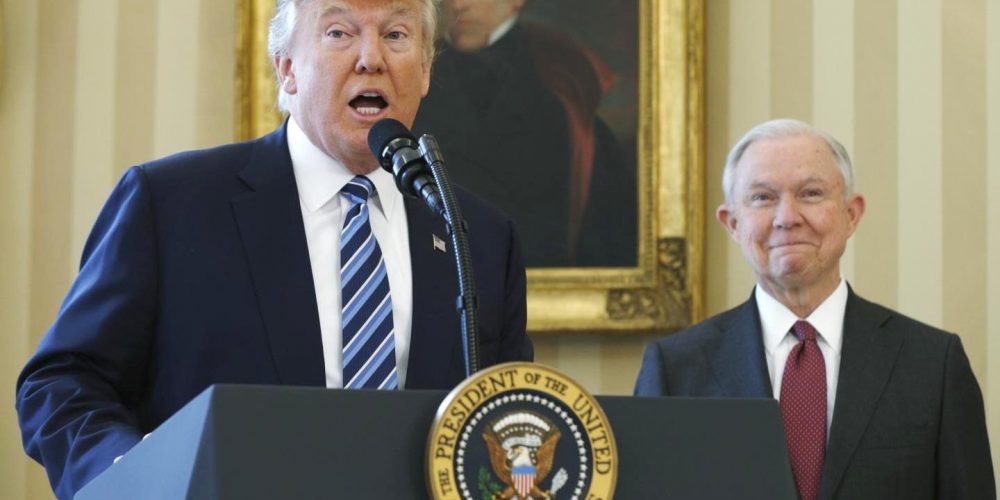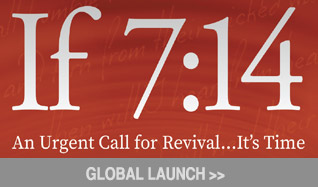While many were rightfully cheering the Trump administration’s rollback of Obamacare’s contraception mandates last week as a win for religious liberty, Trump’s attorney general was quietly scoring what may be an even bigger win on the same front.
In a lengthy memo sent out Friday, U.S. Attorney General Jeff Sessions followed through on President Trump’s May 4 executive order on religious liberty by issuing new guidelines on how the federal government interprets and protects the First Amendment right to “free exercise of religion.”
Those guidelines are nothing short of a bold reversal of years of eroding religious liberty in America, restoring the First Amendment protections as America’s Founders intended.
“I commend President Trump for keeping his promise to defend religious liberty and Attorney General Sessions for his diligence in producing such a definitive statement on the First Amendment,” says Bob Vander Plaats, president and CEO of The FAMiLY LEADER. “This document is a bold stand for freedom and a landmark declaration to a culture confused about its own constitutional rights.”
Most notably, the new guidelines reaffirm that religious liberty is not just the freedom to “worship in a sacred place,” but that it also “encompasses religious observance and practice” in the public arena, and that Americans do not forfeit their religious liberty when they own a business.
Furthermore, the guidelines restrict enforcement of the much criticized “Johnson Amendment” of 1954, which has effectively chilled many churches and pastors from speaking out on government issues.
According to Sessions’ memo, under point No. 7, “The Internal Revenue Service may not enforce the Johnson Amendment … against a religious non-profit organization under circumstances in which it would not enforce the amendment against a secular non-profit organization.”
The memo also reaffirms specific protections to both employees of faith and religious employers, who, the guidelines state, “have certain constitutional and statutory protections for religious hiring decisions.” It further protects religious organizations from being denied federal grants or contracts unless they meet certain hiring practices inconsistent with their faith.
The bulk of the memo is composed of 20 “principles” that all federal administrative and executive departments are instructed to follow. The summary statements of those 20 principles are quoted below (italics in the original):
1. The freedom of religion is a fundamental right of paramount importance, expressly protected by federal law.
2. The free exercise of religion includes the right to act or abstain from action in accordance with one’s religious beliefs.
3. The freedom of religion extends to persons and organizations.
4. Americans do not give up their freedom of religion by participating in the marketplace, partaking in the public square, or interacting with government.
5. Government may not restrict acts or abstentions because of the beliefs they display.
6. Government may not target religious individuals or entities for special disabilities based on their religion.
7. Government may not target religious individuals or entities through discriminatory enforcement of neutral, generally applicable laws.
8. Government may not officially favor or disfavor particular religious groups.
9. Government may not interfere with the autonomy of a religious organization.
10. The Religious Freedom Restoration Act of 1993 prohibits the federal government from substantially burdening any aspect of religious observance or practice, unless imposition of that burden on a particular religious adherent satisfies strict scrutiny.
11. RFRA’s protection extends not just to individuals, but also to organizations, associations, and at least some for-profit corporations.
12. RFRA does not permit the federal government to second-guess the reasonableness of a religious belief.
13. A governmental action substantially burdens an exercise of religion under RFRA if it bans an aspect of an adherent’s religious observance or practice, compels an act inconsistent with that observance or practice, or substantially pressures the adherent to modify such observance or practice.
14. The strict scrutiny standard applicable to RFRA is exceptionally demanding.
15. RFRA applies even where a religious adherent seeks an exemption form a legal obligation requiring the adherent to confer benefits on third parties.
16. Title VII of the Civil Rights Act of 1964, as amended, prohibits covered employers from discriminating against individuals on the basis of their religion.
17. Title VII’s protection extends to discrimination on the basis of religious observance or practice as well as belief, unless the employer cannot reasonably accommodate such observance or practice without undue hardship on the business.
18. The Clinton Guidelines on Religious Exercise and Religious Expression in the Federal Workplace provide useful examples for private employers of reasonable accommodations for religious observance and practice in the workplace.
19. Religious employers are entitled to employ only persons whose beliefs and conduct are consistent with the employers’ religious precepts.
20. As a general matter, the federal government may not condition receipt of a federal grant or contract on the effective relinquishment of a religious organization’s hiring exemptions or attributes of its religious character.
In an accompanying memo, Sessions instructs all attorneys within the U.S. Department of Justice, including U.S. Attorney’s Offices, to follow the new guidelines.
“I therefore direct all attorneys within the Department to adhere to the interpretative guidance set forth in the memorandum,” Sessions writes.
It should be noted, however, that though these new guidelines cite dozens upon dozens of U.S. Supreme Court precedents, the attorney general’s guidelines are not binding on the courts, which could continue restricting and/or redefining religious liberty.
Neither do these federal guidelines automatically overrule state and local legislation or court decisions, which have been used in several states to fine and even drive out of business Christian bakers, florists, and others for exercising the freedoms the attorney general’s memo defends.
Nonetheless, the Trump administration has drawn a strong line in the sand, affirming that the federal government, at least, has no business forcing religious people or businesses to participate in religious ceremonies or create messages that violate their sincerely held religious beliefs.
The memo, therefore, stands as a significant milestone, not only for religious liberty and the rights of conscience, but also for the restoration of constitutional rights for all Americans.



